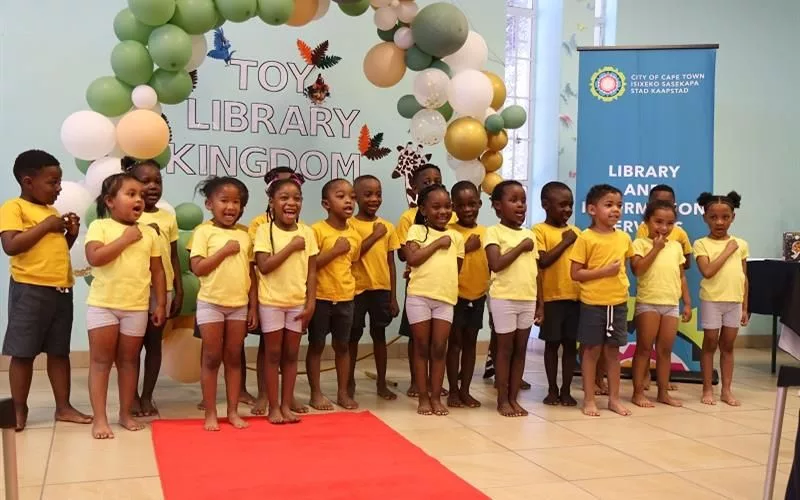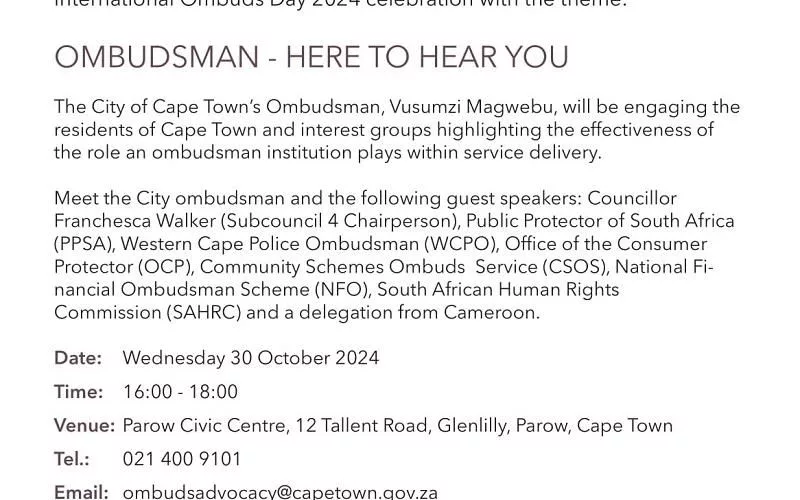Cape Town’s toy libraries are changing how young children learn by creating fun and exciting places to play and grow. With 24 vibrant libraries, kids can explore new stories and play with educational toys that help them develop important skills. Educators also benefit, gaining access to helpful resources that enhance teaching methods. This initiative not only supports children’s growth but also encourages a love for learning that can last a lifetime. As these libraries thrive, they inspire communities everywhere to embrace the joy of learning through play.
How are Cape Town’s toy libraries transforming early childhood education?
Cape Town’s toy libraries are revolutionizing early childhood education by creating engaging spaces for learning through play. With 24 libraries, they enhance cognitive, social, and emotional development, empowering educators and communities with innovative resources that foster a lifelong love for learning.
In the bustling heart of Cape Town, an inspiring initiative is reshaping the landscape of early childhood education. The City of Cape Town’s Library Information Services (LIS) and the Community Arts & Culture Department (CACD) have collaborated to open 12 new Early Childhood Development (ECD) Resource Libraries, also known as toy libraries. This expansion brings the total number to 24, marking a significant milestone in the city’s quest to nurture young minds. These libraries are more than just collections of toys; they are vibrant centers of learning and exploration, where play becomes a powerful educational tool.
A New Approach to Learning
The concept of learning through play has been advocated by educators and researchers worldwide, and Cape Town’s toy libraries embody this philosophy. These spaces are designed to engage children’s cognitive, social, emotional, and physical development. Patricia van der Ross, the Mayoral Committee Member for Recreation and Parks, highlights the role of these lively play areas in reshaping library environments. By transforming traditional library spaces into welcoming, inclusive areas, children can dive into stories, develop early literacy skills, and discover new ways to learn through interactive play.
Strategically located in communities such as Bonteheuwel, Delft, Dunoon, and others, each toy library stands as a beacon for growth and opportunity. They offer transformative experiences not only for kids but also for educators in early childhood development. These libraries are more than just local resources; they represent a commitment to enhancing educational outcomes and fostering a lifelong love for learning.
Empowering Educators and Communities
October and November are set to be pivotal months for the toy libraries, with a series of events aimed at local early childhood centers. These launches are opportunities for ECD staff to delve into the potential of learning through play. The resources available at these libraries offer innovative ways to enrich educational content and teaching methods. Encouraging educators to join the library system is a crucial step toward maximizing these resources. By acquiring a free library card, ECD staff unlock access to a vast array of educational tools that can redefine traditional teaching paradigms.
The addition of toy libraries builds on the success of the Lego corner at Valhalla Park Library, established in August. This initiative highlights the fruitful collaboration between LIS and CACD and underscores a united vision to enhance city facilities and support the growth of young learners. Patricia van der Ross describes the joy of seeing different departments work together to create spaces where children can explore and choose their unique paths in learning through play.
Expanding Horizons in Education
Beyond the newly established libraries, existing toy libraries in areas like Crossroads, Fisantekraal, and Nyanga continue to thrive. Each library serves as a testament to the city’s unwavering dedication to education and community development. These libraries offer a variety of educational resources for use by community ECD centers, although they are not available for personal borrowing. ECD professionals collaborate with library staff to align lesson plans with available resources, creating a cohesive and enriching educational experience for young learners.
These libraries represent more than mere collections of toys and learning materials; they signify a shift in how communities perceive and engage with education, particularly for the youngest members. By integrating these resources into holiday programs and initiatives such as the “1000 Stories before School Reading Campaign,” the toy libraries solidify their vital role within the broader educational ecosystem.
To access the wealth of resources these libraries offer, ECD centers need only a LiBee Membership card, a straightforward step that opens the doors to endless educational possibilities. This initiative extends an open invitation to the community to engage with these resources, reinforcing the idea that education is a collaborative effort.
A Model for Global Educational Innovation
While the toy library initiative is deeply rooted in Cape Town’s local communities, its impact resonates with broader educational and cultural movements. The focus on learning through play aligns with progressive educational philosophies that have gained momentum worldwide. Historical and artistic movements have long emphasized play as a crucial element of learning. The Surrealists, for instance, viewed play as a pathway to creativity and discovery, while educational philosophies like Montessori and Reggio Emilia prioritize child-centered, exploratory learning environments. These principles are mirrored in Cape Town’s toy libraries, offering a modern interpretation of these time-tested approaches.
As the toy libraries evolve into vibrant hubs of activity, they stand as a testament to the power of community engagement and collaboration. They embody an educational vision that transcends conventional boundaries, fostering an environment where children can thrive, explore, and learn at their own pace. By embracing the transformative power of play, Cape Town’s toy libraries not only enrich the lives of today’s young learners but also pave the way for a brighter, more imaginative future.
The unfolding narrative of Cape Town’s libraries is more than just a local story; it’s a universal one, resonating with those who believe in the transformative power of education. As these toy libraries continue to grow and evolve, they offer an inspiring model for other cities and communities seeking to harness the potential of play in education. The journey has just begun, but its impact promises to extend far beyond city limits, inspiring new approaches to learning and community building around the globe.
FAQ about Cape Town’s Transformative Toy Libraries
What are Cape Town’s toy libraries?
Cape Town’s toy libraries are vibrant centers for early childhood development that provide children with opportunities to learn through play. With a total of 24 libraries, they offer a wide range of educational toys and resources that help support cognitive, social, emotional, and physical development.
How do toy libraries benefit early childhood educators?
Toy libraries empower educators by providing access to innovative resources that enhance teaching methods. By obtaining a free library card, early childhood development (ECD) staff can access an array of educational tools that redefine traditional teaching paradigms and align lesson plans with available resources.
Where are these toy libraries located?
The toy libraries are strategically located throughout Cape Town, in communities such as Bonteheuwel, Delft, Dunoon, Crossroads, Fisantekraal, and Nyanga. Each library serves as a local resource for growth and opportunity, making learning accessible to children in diverse neighborhoods.
What is the significance of learning through play in these libraries?
Learning through play is a fundamental philosophy that underpins the toy libraries’ approach to early childhood education. This method encourages children to engage in hands-on exploration, fostering a love for learning while promoting essential skills such as creativity, problem-solving, and collaboration.
How can community members get involved with the toy libraries?
Community members can engage with the toy libraries by acquiring a LiBee Membership card, which provides access to a wealth of educational resources. Additionally, local early childhood centers can collaborate with library staff to enhance their programs and integrate library resources into their curriculum.
What impact do these toy libraries have on the broader community?
Cape Town’s toy libraries signify a shift in how communities engage with education, especially for young learners. By offering a welcoming environment for exploration and learning, they inspire a love for education that extends beyond the libraries, encouraging community involvement and collaboration in nurturing the next generation.








